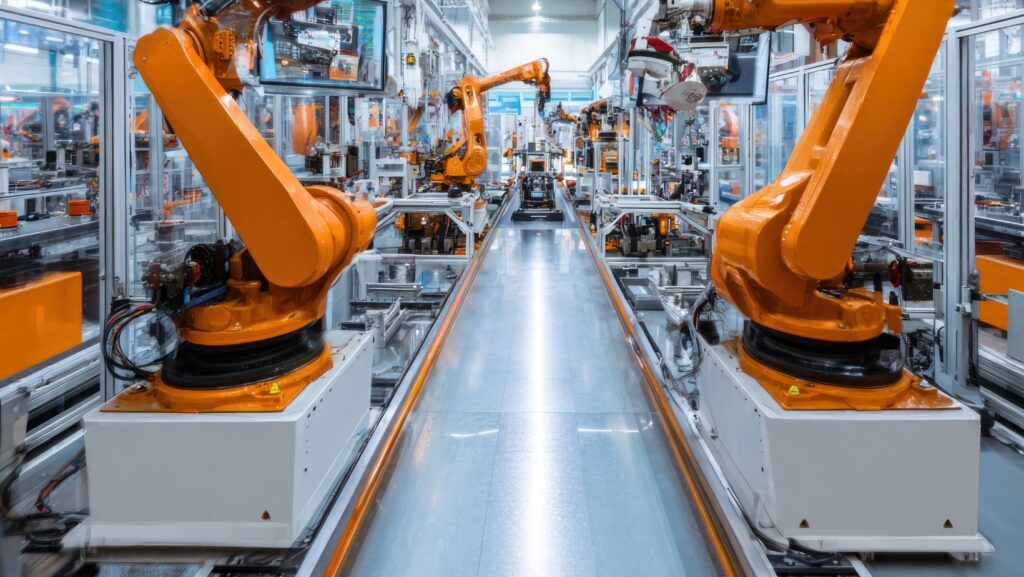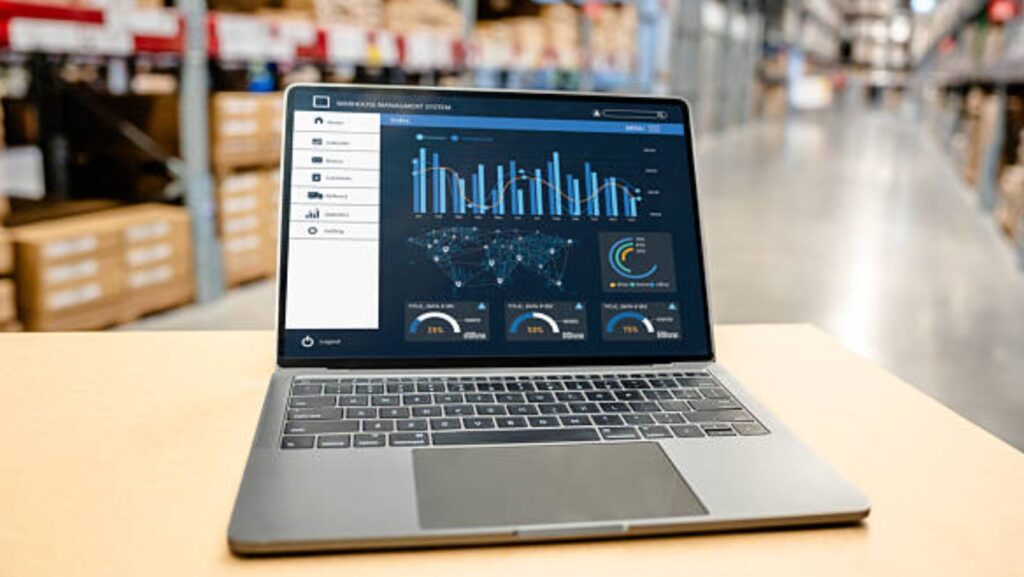Have you ever asked yourself how manufacturing companies manage to keep everything on track when there are so many steps involved, from sourcing raw materials to delivering finished products? The answer often comes from ERP systems, which act like a structured plan to keep all activities connected. In today’s manufacturing industries, ERP plays a central role in making work easier, faster, and more accurate.
What Is ERP in Manufacturing?
ERP stands for Enterprise Resource Planning. In manufacturing, it is a system that combines all the important processes—like inventory, production, finance, and human resources—into one organized platform. Instead of handling tasks separately, ERP allows all departments to work together through one system. This makes information flow smoothly and keeps the company more efficient.
When we look at modern industries, ERP is more than just technology. It is a way to build coordination between people, machines, and processes so that every step in production runs without confusion.
How ERP Supports Daily Operations
Manufacturing has many moving parts, and ERP ensures they all connect properly. It keeps the flow of data updated in real time, so departments can make decisions without delay. For example, if the sales team records a new order, the production team can instantly see what is required and schedule work. Similarly, the inventory team knows when to reorder materials, and finance keeps track of costs at the same time.
This daily support creates a smooth process where each department knows what to do, and managers can see the entire picture clearly.
Core Features That Help Manufacturers
ERP in manufacturing usually comes with features that directly support efficiency:
- Inventory tracking to monitor raw materials and finished goods
- Production planning to make sure schedules and resources are used properly
- Quality checks at every step to maintain product standards
- Human resource tools for employee records and payroll
- Financial management that records all expenses and revenues
Together, these features provide a structured system that improves productivity and helps companies stay consistent.
Why ERP Is Important for Modern Manufacturing
Manufacturing today is about speed, precision, and customer satisfaction. To meet these expectations, companies rely on ERP to stay organized and to make sure every part of the production cycle runs smoothly.
When a company uses ERP, the biggest advantage is that all data is stored in one place. This reduces delays and makes it easier to plan production, deliver orders on time, and maintain quality. It also builds stronger teamwork because every department can access the same information.
Improving Productivity
With ERP, repetitive tasks are automated. For example, reports that used to take hours can be generated in minutes. Employees can spend their time on tasks that matter more, which naturally improves productivity.
Smarter Use of Resources
Manufacturers need to use raw materials, machines, and workers wisely. ERP makes this possible by showing exactly what is available and what is needed. This helps reduce waste and ensures every resource is used in the best way.
Better Decision Making
Managers can use ERP reports to understand production trends, customer demand, and financial health. This clear view helps them make decisions that guide the company toward growth and success.
Long-Term Advantages of ERP in Manufacturing
ERP is not just about daily work. It also provides long-term benefits that help manufacturers grow steadily.
Customer Trust and Satisfaction
With ERP, companies can deliver orders on time and maintain quality. This builds trust with customers. When clients receive reliable service, they return again and again, creating long-term relationships.
Expansion and Growth
As companies expand, ERP can scale along with them. It can handle larger data, more production, and additional employees without reducing efficiency. This makes it a strong tool for companies that want to grow in the future.
Consistency in Quality
Manufacturing depends heavily on product quality. ERP ensures that checks are done at every step, which keeps standards high. Over time, this consistency becomes part of the company’s reputation.
Real-Life Use of ERP in Manufacturing
Think about how a family plans meals for the week. They check what ingredients they already have, buy only what is missing, and prepare everything in the right order. ERP works similarly for manufacturing but on a larger scale. It makes sure materials are available, production is scheduled, and deliveries happen on time.
For those who want to understand this more, resources like manufacturing erp explain how the system brings structure. And for a deeper look, guides such as erp for manufacturing show how it supports different areas of production.
Steps to Successfully Use ERP
- Define clear goals before starting
- Train employees to be comfortable with the system
- Begin with important features and expand gradually
- Keep reviewing and adjusting for better performance

By following these steps, manufacturers can take full advantage of ERP and enjoy its benefits for many years.
How ERP Shapes the Future of Manufacturing
The role of ERP in modern manufacturing is becoming stronger with time. It connects data, people, and machines, making production more efficient. With real-time information and automation, it ensures companies can meet customer demands quickly and confidently.
Confidence for Leaders
Leaders in manufacturing need accurate information to plan and grow. ERP provides them with the reports and insights they need to make smart decisions. This builds confidence and creates a positive work culture across the company.
Strong Market Position
A company using ERP can respond faster to customer needs, maintain consistent quality, and manage costs wisely. Over time, this builds a strong position in the market and allows the business to stand out in a competitive space.
Conclusion
ERP is an important part of modern manufacturing industries. It connects processes, improves productivity, and helps companies deliver reliable products and services. From inventory and production to finance and human resources, it ties everything into one system that supports both daily work and long-term growth. By using ERP, manufacturing industries can plan better, grow faster, and stay successful with confidence.

